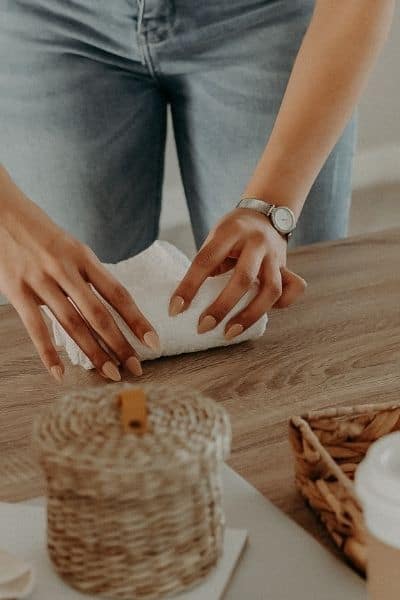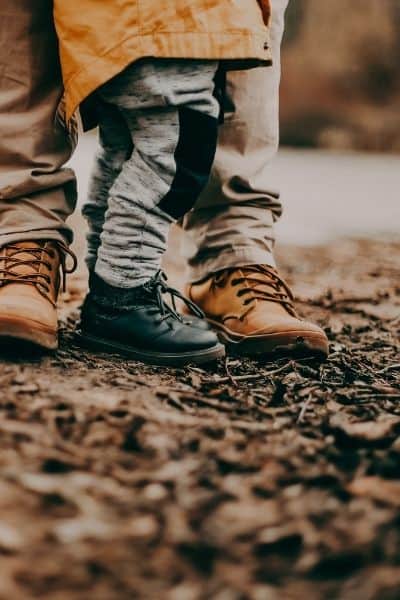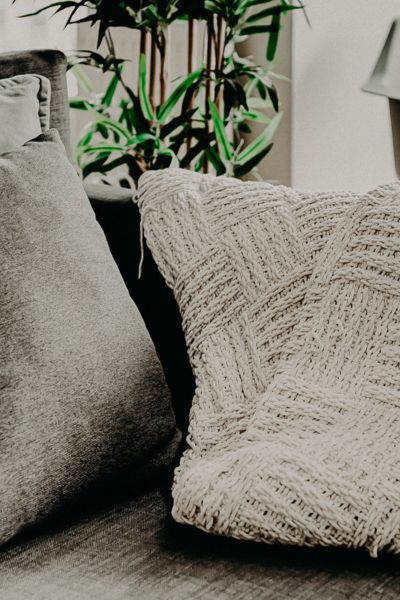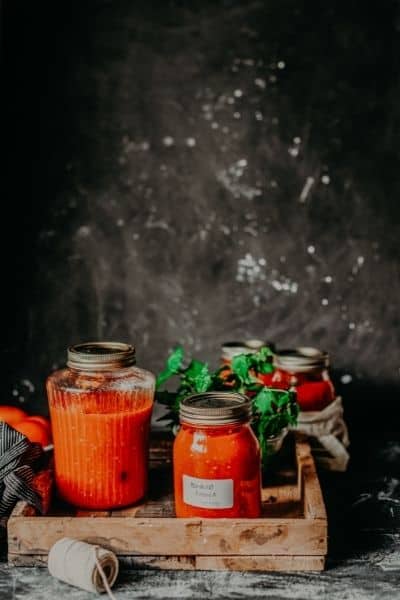Off The Grid Living 101: Beginners Guide to Becoming Self-Sufficient
In this fast-paced, consumer-driven society, many people are longing for a way to cut ties with the norm and live a more self-sufficient life of freedom, independence, and inner peace.
If you are reading this post you likely are mulling over the idea too, but maaaaybe you don’t know where to begin.
The idea of becoming self-sufficient can be overwhelming at first, but don’t let that scare you. No matter if you live in a small apartment in the middle of the city or on a farmstead with 500 acres, you can easily start this journey with a little planning and prep work.
But first things first.
- What Does Off The Grid Living Mean
- Educate Yourself About Off The Grid Living
- Pay Off Debt To Make Off The Grid Living Easier
- De-clutter For Simpler Off The Grid Living
- Embracing Simplicity Is Part Of Off The Grid Living
- Be Open to Learning New Off The Grid Living Skills
- 5 Helpful Off The Grid Living Skills To Learn
- Gardening
- Preserving Food
- Natural Healing
- Sewing
- Water Storage
- Here Are Four Off The Grid Living Mistakes to Avoid
- Trying To Do It All
- Zero Planning For Off The Grid Living
- Ignoring Your True Interests
- No Mindset Prep For This Alternative Lifestyle
What Does Off The Grid Living Mean
It drives me crazy to see that people claim the off-grid life but they have power from a power company. Growing your own food and doing things a little more primitively is not the same.
Here is the definition of off grid.

It sounds all well and good but are you willing to literally leave a life you know and probably love.
Are you willing to give up your bottled water for a natural water source and have a little more unstable electrical power for solar power or wind turbines?
It’s all well and good to like the idea but to see what off the grid life really looks like.
Ready to dig into this beginner’s guide to off-grid living?
Self Sufficient Living: 10 Small Ways You Can Begin to Create A Self Sufficient Living Space
Educate Yourself About Off The Grid Living
Before you make the choice to live a more self-sufficient lifestyle, it’s important to educate yourself on what that really means, not only by definition but also to yourself. Ask yourself what you want most from this new way of life. Maybe you simply want to save money on monthly expenses, so you start growing your own food or use alternative forms of energy.
Maybe you want to go the extreme route and cut ties completely from society. <–(Sometimes I think that one sounds pretty good. Me, my husband, and the dogs and rabbits. I’d be all set.)

Deciding to be self-sufficient doesn’t mean you have to be all in or nothing. You simply have to determine what works for you and the end goal you want for yourself and your family.
I am going to be honest here. When I see people say they living off the grid and yet they have a youtube channel and blog…. Meeaa sorry sister. That doesn’t count. Off the grid means not using public utilities like the power grid.
While we may want to fully cut ties from everything around us and the craziness the government still wants their taxes paid and if you don’t… well by by freedom.
So as you start to learn more about this off grid living I think you will find it is anything but a simple life.
Pay Off Debt To Make Off The Grid Living Easier
If you’re looking to flip the switch and live a more self-sufficient life, it’s important to pay off the debts you owe and work towards financial freedom.
Being in debt weighs you down and limits your options when it comes to how you want to live your life.

Begin making a plan – write out all your expenses, create a monthly budget and decide how you can cut expenses to put any/all extra money towards your debt. As you go along, you can build a bigger savings account that will help contribute towards your self-sufficient journey.
If you start to really love this lifestyle and you want to go full hog. Being debt-free will help you save up the cost of land or be able to set up renewable energy sources like solar panels.
De-clutter For Simpler Off The Grid Living
One of the best things you can do to kickstart a self-sufficient life is to begin ridding your life of all the things you DON’T need.
Clutter has a way of adding stress and anxiety to your life without you even realizing it. In a way, your possessions start to own you rather than the other way around.
Depending on how much stuff you have, it can be overwhelming at first. Start small and focus on one area at a time.
Clean out your closets and donate the things you don’t wear anymore. This can be hard because you might be saving that nice dress for a fancy gathering or those black dress paints that you might need someday. Have you used that thing in the last 5 years? Its probably safe to say you could move that thing along.
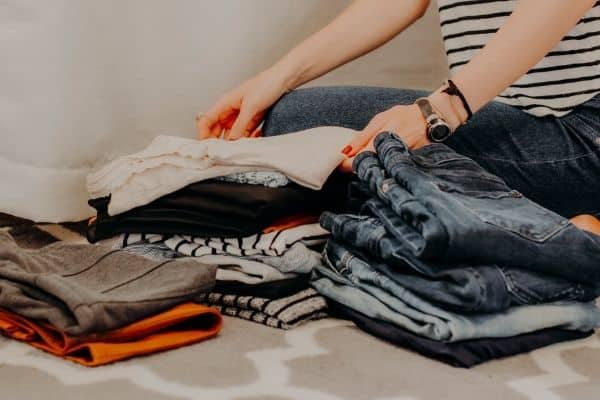
Empty out and re-organize one kitchen cabinet with only the things you actually need. My mom (God love her) LOVES kitchen things. This is what made me start to hate kitchen work because it’s so packed and you can’t easily get to anything when you have to dig.
Once you declutter your life and downsize your material possessions, it will feel like a weight has been lifted from your shoulders. I PROMISE YOU!
Plus, it makes it so much easier to clean AND find things you’re looking for when there’s no clutter to get in the way.
Related Post: Clearing Clutter: To Have A More Peaceful Country Life
Embracing Simplicity Is Part Of Off The Grid Living
Getting away from the daily grind is one of the key reasons people want to live this kind of lifestyle.
When it comes to living a self-sufficient life, it’s important to embrace the idea that less truly is more. By taking a minimalistic approach to life, you can start to move away from the consumer-led, hyperactive society that you’re used to. If we are being honest that is likely a big reason why you are wanting to create an off-grid home and lifestyle anyway.
Learning to love the simple things will open your eyes to be happy with the small, simple moments that fill your day to day. Be mindful of the things you do and take note of what you allow into your life, your head and your home.
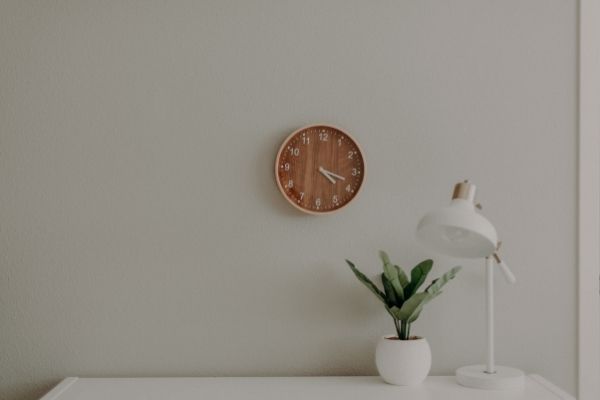
Start a gratitude journal, take a hiatus from social media and spend more time in nature. Going on a walk in the woods and getting to a high point in the land and looin out over nature fills my soul and centers my heart. Helping me see that no matter how crazy life gets. Gods still got us and haven’t forgotten about us.
When you do go shopping, search for quality over quantity, declutter your home and make time to relax every single day. You may be surprised to see how fulfilling it is once you get back to the basics and embrace the simple things in your everyday life.
Be Open to Learning New Off The Grid Living Skills
If you truly want to live a more self-sufficient lifestyle, you’ll need to be open to learning new skills that will help you get there. No matter if you want to go completely off the grid or simply find a more independent way to live in your current space, there are plenty of things you can learn.
Start small at first – instead of a huge backyard garden, try container gardening or make a windowsill box where you can plant some of your favorite herbs.
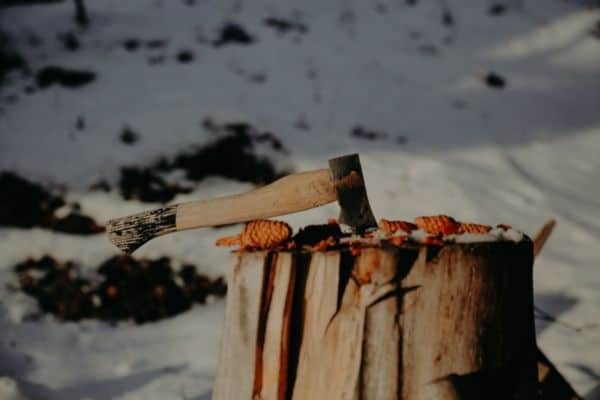
Learn the basics of CPR and educate yourself on natural healing remedies. I love to use herbs with my rabbits and animals. To be quite honest I have saved a lot of my rabbits by treating them with herbs far quicker than if I took them to the vet.
Try your hand at baking bread and learn alternative ways to cook without electricity. Make an effort to continuously learn and build new skills that will allow you to live a self-sufficient life.
Embracing a self-sufficient lifestyle is one of the best things you can do to put yourself back in the driver’s seat and have more control over your future. With a little planning and prep work, you’ll be on your way to independence in no time.
5 Helpful Off The Grid Living Skills To Learn
Becoming more self-sufficient means you are building a lifestyle where you rely less on outside sources to supply your needs and instead create them for yourself.
In order to do this, you need to know certain skills that will not only ensure future success but build your resiliency and confidence along the way. The best part is, you don’t need to be an expert to start living more independently.
You only need to have the willingness to learn the skills that will create a strong self-sufficient foundation for you and your family. Here are 5 essential skills that will allow you to be more self-reliant and live life on your own terms.
Gardening
Growing your own food is one of the best ways to start the journey towards self-sufficient living. It is one of the first places people start because literally, anyone can do it even if you live on the rooftop of Manhattan. (Green Acers anyone)
But it is also one of the more affordable places to start in creating your own food sources with the least amount of responsibility. If life goes crazy and the garden has to take a back seat for a day or two. No harm done. But if you raise animals. Well, you simply have to find a way to make it work. They need to be fed too.
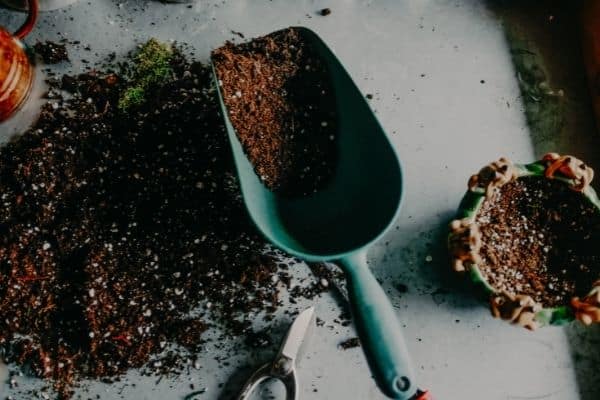
Not only will gardening help you save big money at the grocery store but it’s also a great reason to get out in nature, enjoy the fresh air and soak up some sunshine.
If you are new to gardening, don’t be overwhelmed. Start small with a few of your favorite herbs, vegetables, and fruits. You can expand down the road when you feel more comfortable with the process. With all the YouTube and Pinterest tutorials and gardening books, there are plenty of resources to help you become a successful green thumb in no time.
Preserving Food
If you want to ensure that you get the most use out of the food you grow, you’ll need to learn a variety of ways to preserve it. Canning, pickling, and dehydrating to name a few. You can also rely on freezing your food but keep in mind, if the power happens to go out, you’re out of luck and may lose some important staples. AND be out a lot of money. Whether you had wild game, raised the meat yourself, or even froze some vegies.
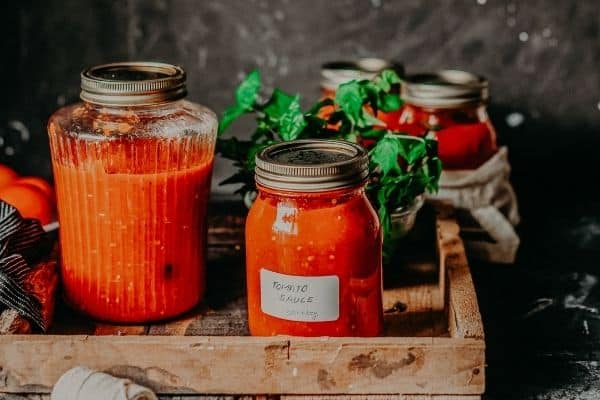
There are two different ways to start canning– water bath canning and pressure canning. Water bath canning is good for things like salsa, jams, pickles, canned fruit, and a variety of sauces while pressure canning works for meat, poultry, beans, peas, tomatoes and so much more.
You can check out a ton of preservation resources online that will have step-by-step details to get you started.
Related Post: How To Cook Food Without Power
Canners
Barton Pressure Canner 22-Quart Capacity Pressure Cooker Built-in Pressure Gauge with (1) Rack –See On Amazon
Ball Jar Collection Elite Stainless-Steel 21-Quart Waterbath Canner with Rack and Glass Lid – See On Amazon
While it may seem silly to get a large canner like this you can put smaller batches in a big canner but if you buy a small one. You’re out of luck.
Natural Healing
These days, it’s normal to treat the common cold or flu with a visit to the doctor’s office and a prescription.
However, if you want to ease away from that way of life and take on a more holistic approach, you’ll need to educate yourself in the ways of natural healing.

Many common household goods have health benefits that you can take advantage of. For example, you can use honey, lemon juice and hot water to help downgrade the pain from a sore throat. Drink some ginger tea when you have a cold or reach for the garlic to help get rid of a bad cough or cold. (My dad does this all the time….While he thinks it helps the rest of us run for the hills and buy him lots of breath mints)
There are many ways you can heal your body naturally without using outside medicine. It also does wonders for your livestock as well. I have used herbs in the rabbitry for years and it has never let me down.
Here are my favorite books for learning about herbs.
Herbal Antivirals, 2nd Edition: Natural Remedies for Emerging & Resistant Viral Infections – See On Amazon
Herbs for Pets: The Natural Way to Enhance Your Pet’s Life (CompanionHouse Books) A-Z Guide to Medicinal Plants, Holistic Recipes, and Nutritional Supplements for Dogs, Cats, Horses, Birds, and More – See On Amazon
This is THE BEST book. While it does use some medical terminology it talks a lot about each individual herb. So you can find the ones you can get your hands on. Learn about it. And not worry about the rest.
I am far from a woo-woo tree huger type. But I also think these natural resources are God’s medicine chest.
This is a great skill to have in your back pocket, especially when those cold winter months hit.
Sewing
Knowing how to mend a hole, repair a button or hem up some pants is a valuable skill to attain when it comes to being resourceful and self-sufficient.
A needle and thread will allow you to fix, repair and even create new and unique items for your wardrobe and your household. From tops and dresses to dishrags and socks, knowing how to sew can save you a ton of money when you don’t have to go out and buy new items, but simply give your old ones a little TLC.

I’ve even done things like fixing the length of curtains to hang the right height. (my husband HATES IT when they puddle on the for. )
If you’re a beginner to the world of sewing, don’t stress. There are many online resources that you can take advantage of to learn this new skill. If you’re more of a hands-on learner, try a sewing and mending workshop in your local area and make new friends while you work that needle and thread.
Water Storage
If your freshwater supply suddenly disappeared, how secure are you that you have enough to get through the day, let alone survive for an extended period of time? Freshwater is VERY important to us and our livestock. Not to mention gardens and food sources. We are normally so used to having an unlimited water supply that we don’t give it a second thought.
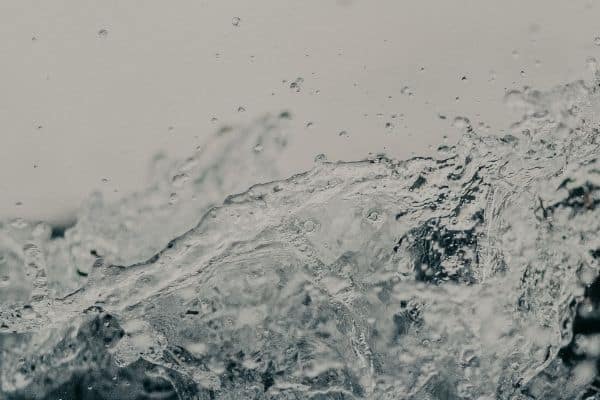
However, becoming more self-sufficient will require you to think about and prep for those times when water might not be at your fingertips and create other clean water sources. This is why learning how to treat and store water is an extremely valuable skill that everyone could benefit from.
From collecting rainwater in a barrel to simple purification methods and storage ideas, this skill will come in handy should disaster strike.
Here are some water storage options you might find handy.
- Upgrade 50 Gallon Rain Barrel Collapsible Rainwater Collection System,Portable Water Storage Tank,Garden Water Catcher (50 Gallon) – See On Amazon
- FCMP Outdoor RC45 Rain Barrel, Black (THis one is way more visually appealing if you don’t want something big and ugly sitting on your property. – See On Amazon
- Emergency Water Storage 5 Gallon Water Tank – 6 Tanks (30 Gallons) – 5 Gallons Each w/Lids + Spigot & Water Treatment – Food Grade, Portable, Stackable, Easy Fill – See On Amazon
- Blue 55 Gallon Water Storage Tank by WaterPrepared – Emergency Water Barrel Container with Spigot for Emergency Disaster Preparedness – Stackable, Space Saving – BPA Free – See On Amazon
Living a self-sufficient off grid lifestyle doesn’t require you to be an expert in everything survival. However, there are some key skills that can help you build a strong foundation as you begin to move towards a life of independence and freedom.
However, there are four keys that you MUST know before you begin your off-grid lifestyle journey.
They will keep you strong and from wanting to give up on your dreams.
Here Are Four Off The Grid Living Mistakes to Avoid
When you make the decision to become more self-sufficient, it can be easy to jump in with both feet and quickly feel like you’re treading water. Like I said before this living off the grid lifestyle really isn’t a “simpler life” at all. In fact, it might even require you to keep more balls in the air than before.
But a slower more back-to-nature type of life is certainly is.
Building this new lifestyle takes a little planning, prep work, research, and patience if you want to do it correctly and not burn out halfway in.
If you are completely new to this concept, you may need a little guidance to avoid the pitfalls that could easily derail you. Here are 4 common mistakes you’ll want to avoid on the road to self-sufficiency.
Trying To Do It All
When you first begin this journey, it’s important to start small and not overwhelm yourself trying to do and learn everything at once. Pick one or two things that you can work on to make your life more self-sufficient and roll with them. Practice until you get good at them or it feels like it flows with your normal routine.
For example, learn to cook one meal completely from scratch or research the best ways to start a container garden as well as when and what to plant.
Avoid trying to learn 5 new skills in one week or turn your home to run fully on solar energy.
You’ll just end up overwhelmed and ready to throw in the towel before you even begin. Take one step at a time and you’ll be a self-sufficient pro before you know it.
Zero Planning For Off The Grid Living
A big mistake that many people make when starting out is jumping all in with no clear direction. People buy the basics of whatever they want to do and learn as they go without even any thought to initial costs.
It’s just assumed that if you do something yourself that it costs less but that is not always true. So planning the cost of living into the lifestyle is very important.
Although you don’t have to research all the things or try to do everything at once, you definitely need a general plan of what you want your life to look like.

Do you simply want to grow your own food and not rely so much on grocery store hauls or do you want to turn your home into an eco-friendly, energy-efficient masterpiece? Do you want to try a hybrid energy system or find electrical energy alternatives?
Do you want both or something in between? Self-sufficiency looks different for everyone. Personally, I am in the middle. I like to do as much as possible for myself. But I also won’t pay 5 times more to grow my own chicken than if I bought it from the store.
Do your research and ask yourself questions to figure out what path is best for you and your family in regards to TIME AND MONEY. Then put that plan in place.
Ignoring Your True Interests
When you start a self-sufficient lifestyle, every skill seems to have the utmost importance – cooking, sewing, gardening, canning, etc.
While it is important to learn new things and push yourself outside your comfort zone, it’s just as valuable to know what you’re already good at and focus a lot of your time and energy there.
For example, maybe you love to cook but gardening tends to throw you off your game. Instead of making yourself crazy trying to learn the ins and outs of gardening all at once, focus more on learning new meals to cook from scratch and plant a small herb garden instead. You can build your gardening skills over time and at your own pace while you focus more on getting better, doing what you already love.
Just because it is something that all the “legit” homesteaders and modern off-grid lifestyle influencers are doing does not mean that is what you have to do.
I am not a huge gardener. Can I? Yes. Do I want to have a half-acre garden to supply my own food? NOPE!
But give me all the animals and I’m in my happy place.
No Mindset Prep For This Alternative Lifestyle
Another easy mistake is forgetting to prep yourself mentally and emotionally for a self-sufficient lifestyle. You’ve been reliant on others and society for as long as you can remember – it’s not easy to flip the switch and rethink your whole lifestyle.
Changing the way you look at everything takes some time to get used to – from how you spend money to the foods you eat to how you spend your free time – it’s a big adjustment and you need to give yourself time and grace to work through it.

The important thing is, that you acknowledge there will need to be a mindset shift right from the start, and prepping for that now can eliminate unrealistic expectations and problems in the future.
These are just a few mistakes you can avoid on the path to becoming more self-sufficient. Don’t rush the process and give yourself time to adjust to this new way of life.
By taking one step at a time, you’ll eventually find the freedom and independence you’re looking for.
